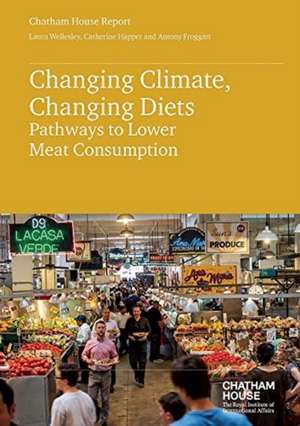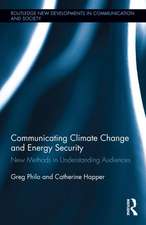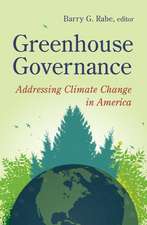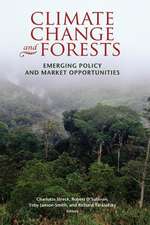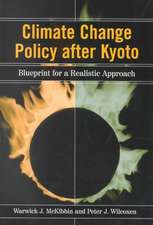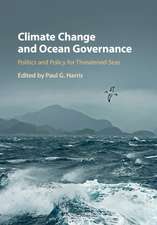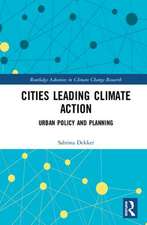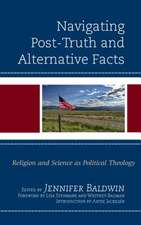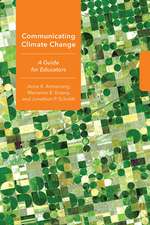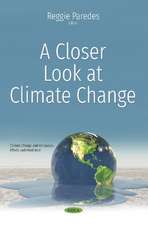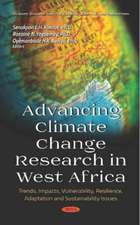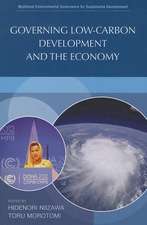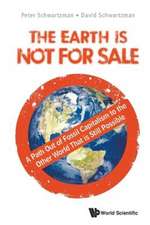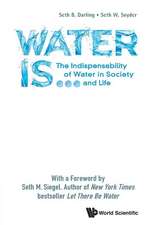Changing Climate, Changing Diets: Pathways to Lower Meat Consumption
Contribuţii de Laura Wellesley, Catherine Happer, Antony Froggatten Limba Engleză Paperback – 10 mai 2016
Human consumption of meat and dairy products is a major driver of climate change but has been largely overlooked in national and international climate change policy. Using data obtained from a twelve-country survey and from focus groups and stakeholder meetings in Brazil, China, the United States, and the United Kingdom, this report explores public understanding and awareness of the links between meat and dairy consumption and climate change. It makes recommendations as to how state and nonstate actors can develop policies that support sustainable diets at the national and international level. The report will help to inform discussion around demand-side measures to reduce the climate impact of the livestock sector, measures that are essential to meet international climate targets and realize important health, environmental and societal benefits.
Preț: 118.78 lei
Nou
Puncte Express: 178
Preț estimativ în valută:
22.74€ • 23.64$ • 18.85£
22.74€ • 23.64$ • 18.85£
Carte tipărită la comandă
Livrare economică 05-19 februarie 25
Preluare comenzi: 021 569.72.76
Specificații
ISBN-13: 9781784130558
ISBN-10: 1784130559
Pagini: 80
Dimensiuni: 211 x 297 x 9 mm
Greutate: 0.25 kg
Editura: Brookings Institution Press
Colecția Chatham House
Locul publicării:United Kingdom
ISBN-10: 1784130559
Pagini: 80
Dimensiuni: 211 x 297 x 9 mm
Greutate: 0.25 kg
Editura: Brookings Institution Press
Colecția Chatham House
Locul publicării:United Kingdom
Notă biografică
Authors:
Laura Wellesley is a research associate with the Energy, Environment, and Resources department at Chatham House. She works with issues relating to food security and climate change.
Catherine Happer is a lecturer in sociology at the Glasgow University Media Group. In September 2015 she will convene a new MSc in Media, Communications, and International Journalism.
Antony Froggatt is a senior research fellow with the Energy, Environment, and Resources department at Chatham House. He studied energy and environmental policy at the University of Westminster and the Science Policy Research Unit at Sussex University, and is currently an honorary research fellow at Exeter University.
Contributing Authors:
Rob Bailey is the research director of the Energy, Environment, and Resources department at Chatham House. His expertise includes food security, sustainable agriculture, biofuels, and climate change and adaptation.
Gregory Philo is professor of Communications and Social Change at the University of Glasgow, where he is also the research director of the Glasgow University Media Unit.
Rachel Shairp is a coordinator with the Energy, Environment, and Resources department at Chatham House.
Laura Wellesley is a research associate with the Energy, Environment, and Resources department at Chatham House. She works with issues relating to food security and climate change.
Catherine Happer is a lecturer in sociology at the Glasgow University Media Group. In September 2015 she will convene a new MSc in Media, Communications, and International Journalism.
Antony Froggatt is a senior research fellow with the Energy, Environment, and Resources department at Chatham House. He studied energy and environmental policy at the University of Westminster and the Science Policy Research Unit at Sussex University, and is currently an honorary research fellow at Exeter University.
Contributing Authors:
Rob Bailey is the research director of the Energy, Environment, and Resources department at Chatham House. His expertise includes food security, sustainable agriculture, biofuels, and climate change and adaptation.
Gregory Philo is professor of Communications and Social Change at the University of Glasgow, where he is also the research director of the Glasgow University Media Unit.
Rachel Shairp is a coordinator with the Energy, Environment, and Resources department at Chatham House.
Descriere
Human consumption of meat and dairy products continues to be a major driver of climate change but has, so far, been largely overlooked in national and international climate policy. Using data obtained from a twelve-country survey and focus groups and stakeholder meetings in Brazil, China, the United States, and the United Kingdom, the report explores the extent of public awareness and understanding of the issue and makes specific recommendations for state and non-state actors to develop dietary change policies on national and international levels. In doing so, it will help to shift the focus toward demand-side action, which has been shown to be essential both to meet internationally agreed-upon climate objectives and to achieve other societal, health, and environmental objectives.
